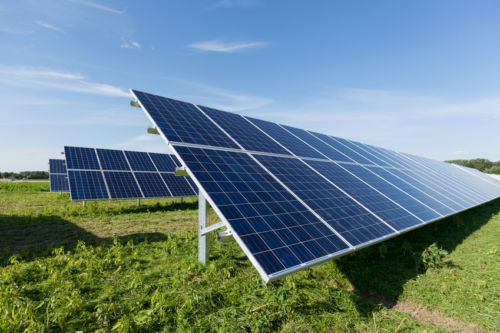Tuesday, 20/01/2026 | 09:50 GMT+7
The Taiwanese government should provide subsidies for the solar panel industry to help it survive in that country, University of Exeter researchers have recommended. Solar photovoltaic production in Taiwan is not competitive, a new study has found, and more support should be given to producers through publically-funded research and development.
Politicians should give support so companies can develop advanced technology and use new advances and production methods from abroad, experts recommend, and the Taiwanese government should help to encourage academics to share their expertise with people working in the solar panel industry.
Solar panel producers in Taiwan should do more to differentiate themselves from their competitors in other nations.
The global solar photovoltaic industry is heavily affected by government policy. Green technology is becoming increasing popular as many governments invest in policies to encourage a new energy industry because of the shortage of natural resources.

The cost of electricity generated by solar panels is still higher than nuclear power, coal and gas and governments provide financial incentives to encourage take-up. Solar panels are now becoming increasingly popular in Asian countries, particularly China and Japan. They are also becoming installed in more households in the USA.
The study by Dr Jeff Jia from the University of Exeter Business School, and Hui Sun and Lenny Koh, from the University of Sheffield School of Management, is thought to be the first detailed comparison of policy, industry and the supply chain in Taiwan, China, Japan, Germany and the USA.
Academics found the only strength of producers in Taiwan is in solar cell production, and they could gradually lose its competitive advantage even in this.
In 2000, the global PV market value was worth USD 2.5 billion but has boomed over the past 15 years as a result of strong global demand. In 2011, the market value had risen to USD 91.6 billion. By 2012 the economic recession caused a 13 per cent drop in market value to USD 79.7 billion in 2012, but it had recovered by 15 per cent up to USD 91.3 billion in 2013.
By 2015 56 per cent of the global market share of the solar market share industry was in Asia. The five countries with the highest demand were China, Japan, USA, Germany and United Kingdom, which accounted for 75 per cent of market shares.
Dr Jia said: "The solar industry has become a battlefield for the global trade war as every government creates tariffs or some kind of trade barriers to protect its own interests. On one hand, China indeed destroyed the market mechanism by selling PV products at a price below the normal level, thus forcing many producers in USA, EU and Japan to leave the market.
"On the other hand, low-cost equipment has enhanced the amount of world's installation and increased the electricity generated by solar power. China and the USA should enhance the growth together rather than obstruct development."
Global Solar Photovoltaic Industry: An overview and national competitiveness of Taiwan is published in the Journal of Cleaner Production.
Solardaily.com








 Steel Enterprises Saving Energy and Enhancing Competitiveness
Steel Enterprises Saving Energy and Enhancing Competitiveness
 Strengthening Sales and Marketing Capacity for Energy Efficiency Equipment and Solution Suppliers
Strengthening Sales and Marketing Capacity for Energy Efficiency Equipment and Solution Suppliers
 Capacity Building for Energy Officers of Government Agencies in the Central region
Capacity Building for Energy Officers of Government Agencies in the Central region
 Energy Efficiency and Conservation: Technology as the “Key”
Energy Efficiency and Conservation: Technology as the “Key”
 Energy-saving solutions and green transition promotion
Energy-saving solutions and green transition promotion
 Opening of the 2025 Energy-Efficient Equipment and Green Transition Exhibition Fair
Opening of the 2025 Energy-Efficient Equipment and Green Transition Exhibition Fair
 Develop sales and marketing strategies for energy efficiency equipment and solution suppliers
Develop sales and marketing strategies for energy efficiency equipment and solution suppliers